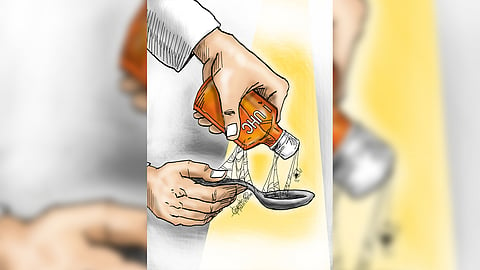
- NEWS
- the EDIT
- COMMENTARY
- BUSINESS
- LIFE
- SHOW
- ACTION
- GLOBAL GOALS
- SNAPS
- DYARYO TIRADA
- MORE

Five years after the implementation of the Universal Health Care (UHC) Act, Filipinos continue to have to shell out 60 percent of their hospitalization and medical expenses out of pocket.
The implementer of the law, the Philippine Health Insurance Corp. (PhilHealth), bungled its mandate to make the country’s health system more efficient and instead used the hundreds of billions of pesos in member contributions — which grew as a result of the UHC Act’s requirement to improve services — to make investments.
The World Health Organization (WHO) praised the Philippines for crafting the UHC law that automatically enrolled all Filipino citizens in the National Health Insurance Program and prescribed complementary reforms in the health system.
The WHO said the UHC “gives citizens access to the full continuum of health services they need, while protecting them from enduring financial hardship as a result.”
Senator JV Ejercito, chairperson of the Senate Health Committee and principal author of the bill, said during the signing of the law on 14 March 2019:
“In our visits to hospitals in different provinces, my own eyes saw the deplorable state of our countrymen — in hot and cramped wards, enduring the lack of government support. It is sad that our fellow citizens, rather than be healed, are worried about being infected with the illness of another patient.”
PhilHealth, being the steward of the UHC Act and the National Health Insurance Fund, should ensure that the healthcare fund is properly safeguarded, appropriately managed, and utilized to avoid losses and wastage.
During a recent oversight meeting on the UHC law at the House of Representatives, PhilHealth was called on to further expand its benefit programs by increasing the coverage for hemodialysis and mental health, and providing more programs for children with autism and special needs, among others.
PhilHealth agreed with the recommendations and expanded the benefit programs. Fund members questioned the need for PhilHealth to be nudged by the legislators to do its job properly.
“The high percentage of its cash flow and of the unused portion of its reserve fund allocated for investments, the delayed and minimal expansion of benefit programs, and the non-utilization and investment of the subsidies from the national government may constitute non-compliance with the UHC Act, and may deprive members of adequate and additional benefit coverage,” the Commission on Audit (CoA) said.
In its 2023 audit of PhilHealth, the CoA said: “Ultimately, the objective and mandate of PhilHealth to ensure that all Filipinos are guaranteed equitable access to quality and affordable healthcare, goods and services, and are protected against financial loss, may not be fully achieved.”
The CoA noted that instead of developing programs and increasing benefit packages, PhilHealth scheduled a staggered remittance to the Bureau of the Treasury totaling P89.9 billion from perceived excessive or unutilized government subsidies for premium contributions from 2021 to 2023.
“This approach is not supported by PhilHealth’s failure to adopt rationalized and increased benefit packages due to an insufficient budget allocation,” according to state auditors.
It said that there should not have been any idle funds since benefit packages for other reproductive health concerns had yet to be adopted by PhilHealth, despite the mandate of Republic Act 10354 or The Responsible Parenthood and Reproductive Health Act of 2012.
PhilHealth is specifically required under the UHC law to invest in the reserve fund if it has fulfilled its current expenditure obligations and supported the programs required under the law.
